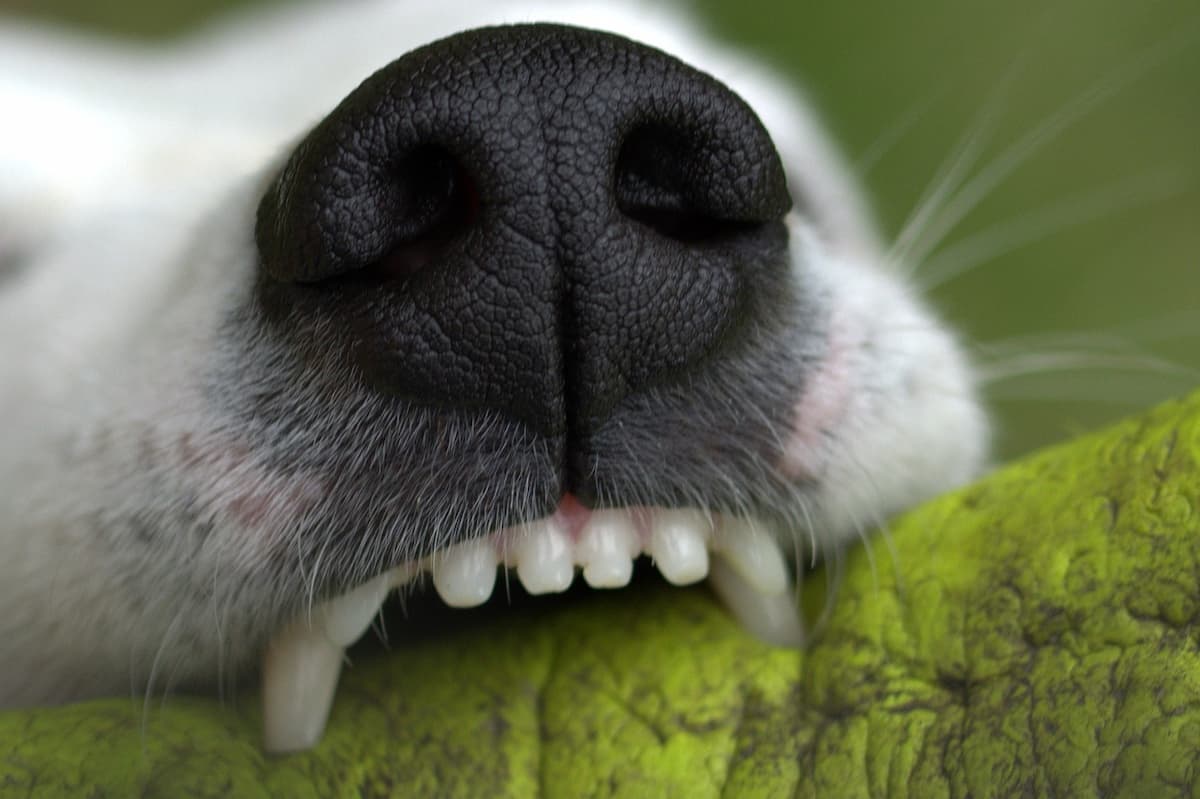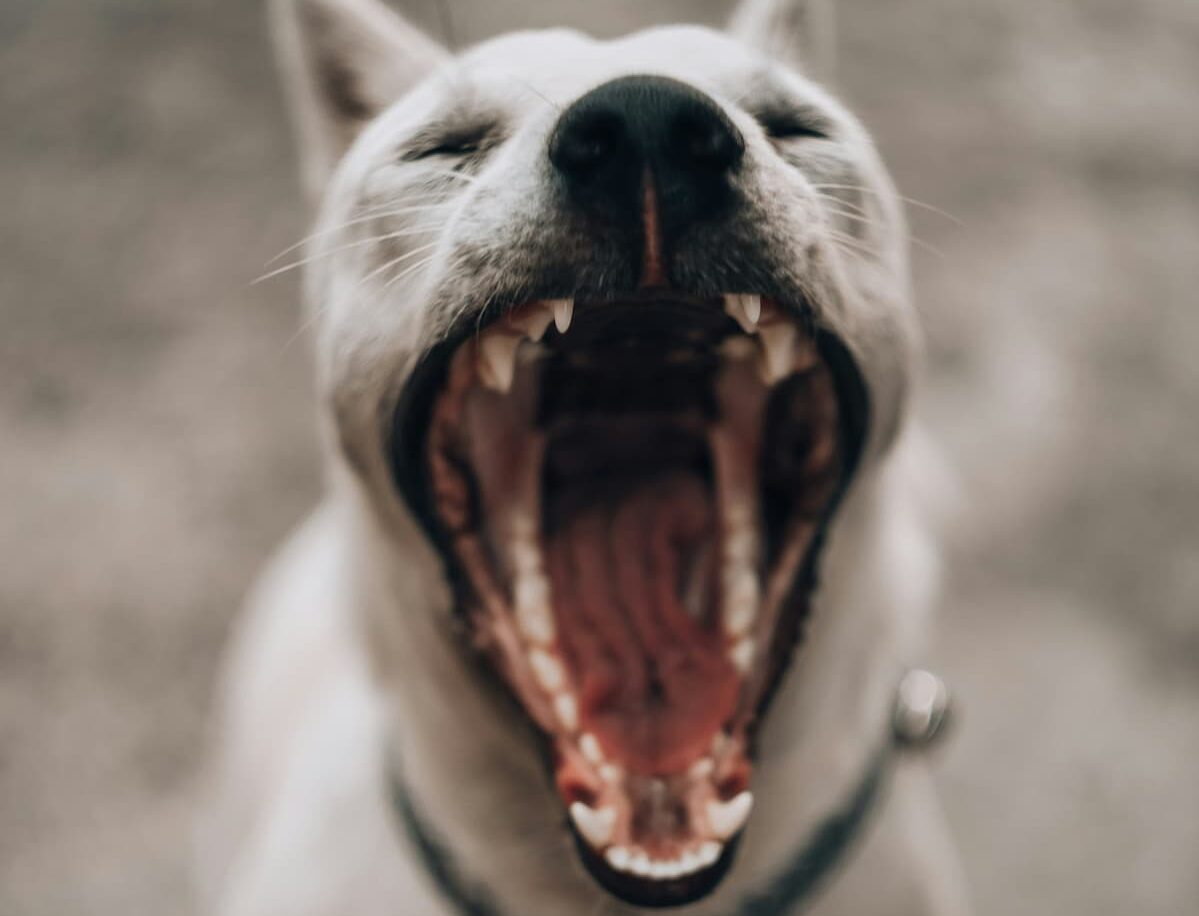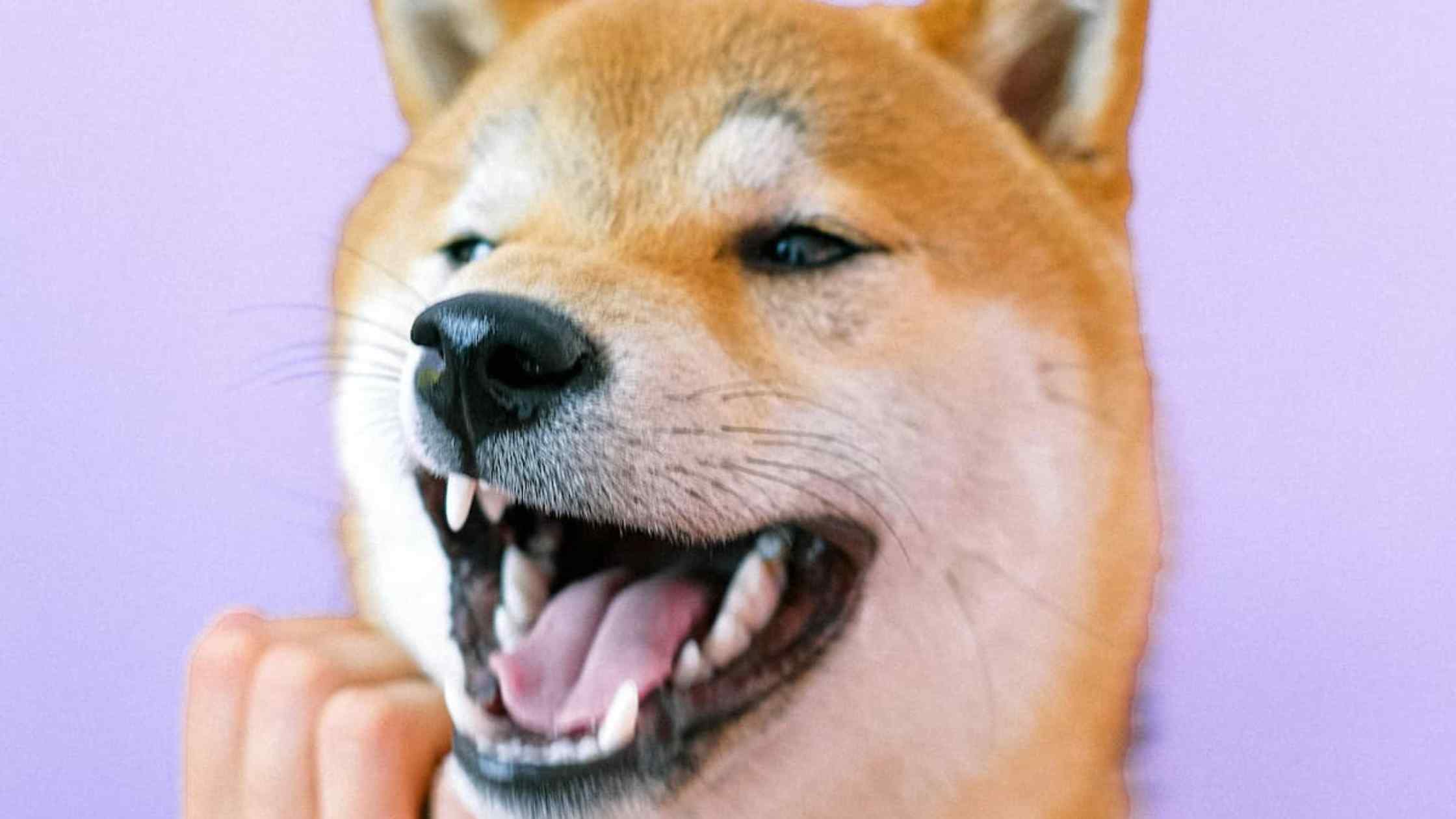Have you ever noticed your furry friend making a peculiar clicking sound with their teeth?
It’s almost as if they’re trying to communicate with Morse code, but to your confusion, there’s no message to decipher.
While it may seem strange, rest assured that this canine curiosity is perfectly normal.
So, why do dogs click their teeth?
Read on to find out.
Why Do Dogs Click Their Teeth?
Do you ever notice your dog making a clicking sound with their teeth?
It can be a bit perplexing, but there are actually several reasons why dogs exhibit this behavior.
Understanding the reasons behind why dogs click their teeth is essential in order to provide appropriate care and find potential solutions.
Chewing Habits
It must be noted that chewing is a natural instinct for dogs, and it serves several purposes.
Not only does it help keep their teeth clean and strong, but it also provides them with mental stimulation and relieves anxiety.
When a dog clicks their teeth, it’s often a sign that they are engaging in this instinctual behavior.
They may be gnawing on a bone or chewing on a toy, and the clicking sound is a byproduct of their jaws rapidly moving back and forth.
Tips for Maintain Your Canine’s Oral Hygiene
Dental health is crucial for our furry friends, and as responsible pet owners, it’s our duty to ensure their oral hygiene.
Many pet parents have noticed their dogs clicking their teeth and wondered what the reason behind this behavior is.
While it may sound alarming, there are several possible explanations for this peculiar sound.
Let’s dive into some of the reasons why dogs click their teeth and how you can address dental issues to maintain good oral hygiene in your canine companion.
1. Dental Misalignment: Just like humans, dogs can experience dental misalignments, which can cause their teeth to click.
This could be due to a variety of factors, such as genetics or trauma.
If you notice your dog clicking their teeth regularly, it may be worth a trip to the vet to assess their dental health and see if any interventions, like braces or tooth extraction, are necessary.
2. Dental Disease: Dental issues in dogs are more common than we think.
Poor oral hygiene can lead to gum disease and tooth decay, which can cause discomfort and clicking sounds when your dog chews or closes their mouth.
Regular brushing and dental check-ups are essential to prevent and address dental diseases.
Make sure to use a pet-specific toothbrush and toothpaste to keep their pearly whites sparkling clean.
3. Dental Problems in Older Dogs: Aging can also contribute to dental issues in dogs, just as it does in humans.
As dogs get older, their teeth may become weaker, leading to misalignments or increased sensitivity.
This can result in clicking sounds when they eat or even while at rest.
Providing your furry companion with softer food options and regular dental care can help alleviate discomfort and maintain their oral health as they age.
Regular dental check-ups and proper oral hygiene can go a long way in preventing and managing these dental issues, ensuring your pup’s dental health is in top shape.
Unraveling the Emotional Triggers Behind Teeth Clicking in Dogs
Stress and anxiety are common emotional triggers behind teeth clicking in dogs.
Just like humans, our furry friends can experience a range of emotions, and sometimes these emotions manifest in unusual ways.
Stress can stem from various sources, such as changes in their environment, separation anxiety, or even encounters with aggressive dogs.
When dogs feel stressed, their natural response may be to click their teeth as a way to cope with their emotions.
It’s similar to how some people might clench their jaw or grind their teeth when they’re feeling tense.
Anxiety is another factor that can lead to teeth clicking in dogs.
Whether it’s due to fear of thunderstorms, fireworks, or unfamiliar situations, anxious dogs may click their teeth as a sign of discomfort.
Just like with stress, teeth clicking allows them to release some of their pent-up anxiety, providing a temporary outlet for their unease.
In some cases, dogs may click their teeth as a result of a medical condition called canine compulsive disorder (CCD).
Similar to obsessive-compulsive disorder in humans, CCD can cause dogs to engage in repetitive behaviors, such as teeth clicking, as a means of coping with anxiety.
If you suspect CCD, it’s crucial to consult with a veterinarian who can evaluate your dog’s behavior and provide appropriate treatment options, such as behavior modification techniques or medication.
Ways to Help Relax Stress-Induced Teeth Clicking in Dogs
If you’ve noticed your furry friend clicking their teeth, it’s important not to ignore this behavior.
Teeth clicking can signal discomfort, and addressing the underlying cause is essential for your dog’s well-being.
Thankfully, there are effective calming techniques that can help relieve stress-induced teeth clicking in dogs.
Here are some tried-and-true methods to help your canine companion relax and kick that pesky teeth clicking habit to the curb:
1. Massage Therapy: Just like a massage can work wonders for humans, dogs can also benefit from this form of relaxation.
Gently massage your dog’s neck and back using long, soothing strokes.
This will not only help reduce muscle tension but also promote a sense of calmness.
2. Environmental Enrichment: Dogs thrive in an enriched environment that offers mental stimulation and outlets for their energy.
Provide interactive toys, puzzle feeders, and regular play sessions to keep your furry friend engaged and entertained.
This will help distract them from their anxieties and prevent teeth clicking.
3. Calming Music and Aromatherapy: Music has a powerful effect on our emotions, and dogs are no exception.
Play soothing classical music or specially designed relaxation tunes to create a calming atmosphere for your pup.
Additionally, consider using calming aromatherapy oils such as lavender or chamomile, which can help alleviate stress and anxiety.
By implementing these calming techniques, you can help your beloved dog relax and reduce their stress-induced teeth clicking.
Remember, a healthy and happy dog is a peaceful dog!
When to Consult a Veterinarian for Persistent Teeth Clicking
While occasional teeth clicking is usually harmless, persistent teeth clicking may indicate an underlying dental or health issue that requires professional attention.
So, when should you start considering a visit to the veterinarian for your dog’s teeth clicking?
Here are a few signs that may indicate it’s time to consult a professional:
Frequency: If your dog is clicking their teeth frequently throughout the day, it may be a cause for concern.
Pay attention to how often it occurs and if it seems to be happening more frequently over time.
Duration: Normal teeth clicking in dogs is usually brief and sporadic.
However, if the clicking persists for extended periods or seems to be continuous, it could be a sign of an underlying problem.
Other symptoms: Keep an eye out for any additional signs of discomfort or abnormal behavior.
Excessive drooling, difficulty eating, bad breath, or swollen gums could be indications of dental issues.
Remember, it’s always better to be safe than sorry when it comes to your pet’s health.
If you notice any of the above signs or have any concerns about your dog’s teeth clicking, don’t hesitate to reach out to a veterinarian.
They will be able to examine your dog’s teeth and mouth thoroughly, diagnose any underlying issues, and recommend the appropriate treatment or preventive measures.
Your furry friend will thank you for taking care of their dental health!
FAQ
Q: Why does my dog click their teeth when they’re excited or anxious?
A: That clicking sound you hear from your pup’s teeth when they’re experiencing strong emotions, like excitement or anxiety, is commonly known as a “chattering response.”
Similar to how humans might shiver when they’re cold, dogs may involuntarily chatter their teeth as a physical manifestation of their heightened emotions.
It’s their way of releasing excess energy or tension.
Q: Are there any other reasons why dogs click their teeth?
A: Indeed!
Besides emotional responses, dogs may also click their teeth during specific situations or to communicate certain messages.
For instance, if your dog is intently focused on something or keeping a watchful eye, they might click their teeth to signal alertness.
Similarly, some dogs may click their teeth as a way of expressing dominance or establishing their territory.
Q: Is teeth clicking always innocuous, or could it indicate a health problem?
A: While occasional teeth clicking is usually nothing to worry about, persistent or excessive chattering could potentially be a sign of an underlying issue.
Dental problems, such as misaligned teeth or dental pain, could lead to frequent teeth clicking.
If you notice this behavior continuing for an extended period, it’s best to consult your veterinarian to rule out any potential health concerns.
Q: Can I do anything to prevent or manage teeth clicking in my dog?
A: Absolutely!
If your dog’s teeth clicking appears to be related to excitement or anxiety, providing them with appropriate outlets for their energy can be helpful.
Engage them in regular exercise, mentally stimulating activities, and ensure they receive ample attention and companionship.
On the other hand, if you suspect dental issues, make sure your dog maintains good oral hygiene, schedule regular veterinary check-ups, and follow any recommended dental care routines.
Q: To conclude, is teeth clicking in dogs a cause for concern?
A: In most cases, teeth clicking is a harmless behavior that dogs engage in.
However, if it becomes excessive or is accompanied by other concerning symptoms like pain or discomfort, it’s crucial to seek professional advice.
Remember, every dog is unique, so paying attention to their overall behavior and health is key to understanding and addressing any potential issues.
So, the next time you hear your pooch clicking their teeth, you’ll have a better understanding of what might be going on.
Dogs are truly remarkable creatures, and their quirky behaviors always add to the joy of having them in our lives!
End Notes
From playful excitement to expressing nervousness or even showing some affection, their teeth clicking behavior serves as another tool to express themselves.
Next time you see your dog clicking their teeth, don’t be alarmed.
Instead, observe the context and take note of their body language to decode their message.
Whether it’s a simple case of anticipation during playtime or a signal to let you know they’re feeling unsure, understanding their clicks can strengthen the bond between you and your loyal companion.
Remember, dogs are intelligent creatures with their unique ways of communication.
Paying attention to their body language, vocalizations, and, of course, those subtle clicks will ensure a happy and harmonious relationship with your four-legged friend.
So cherish those precious moments, keep loving them unconditionally, and embrace their little quirks—clicks and all.
After all, dogs are here to bring joy and companionship into our lives, and what better way to appreciate them than by sharing this incredible journey together.














